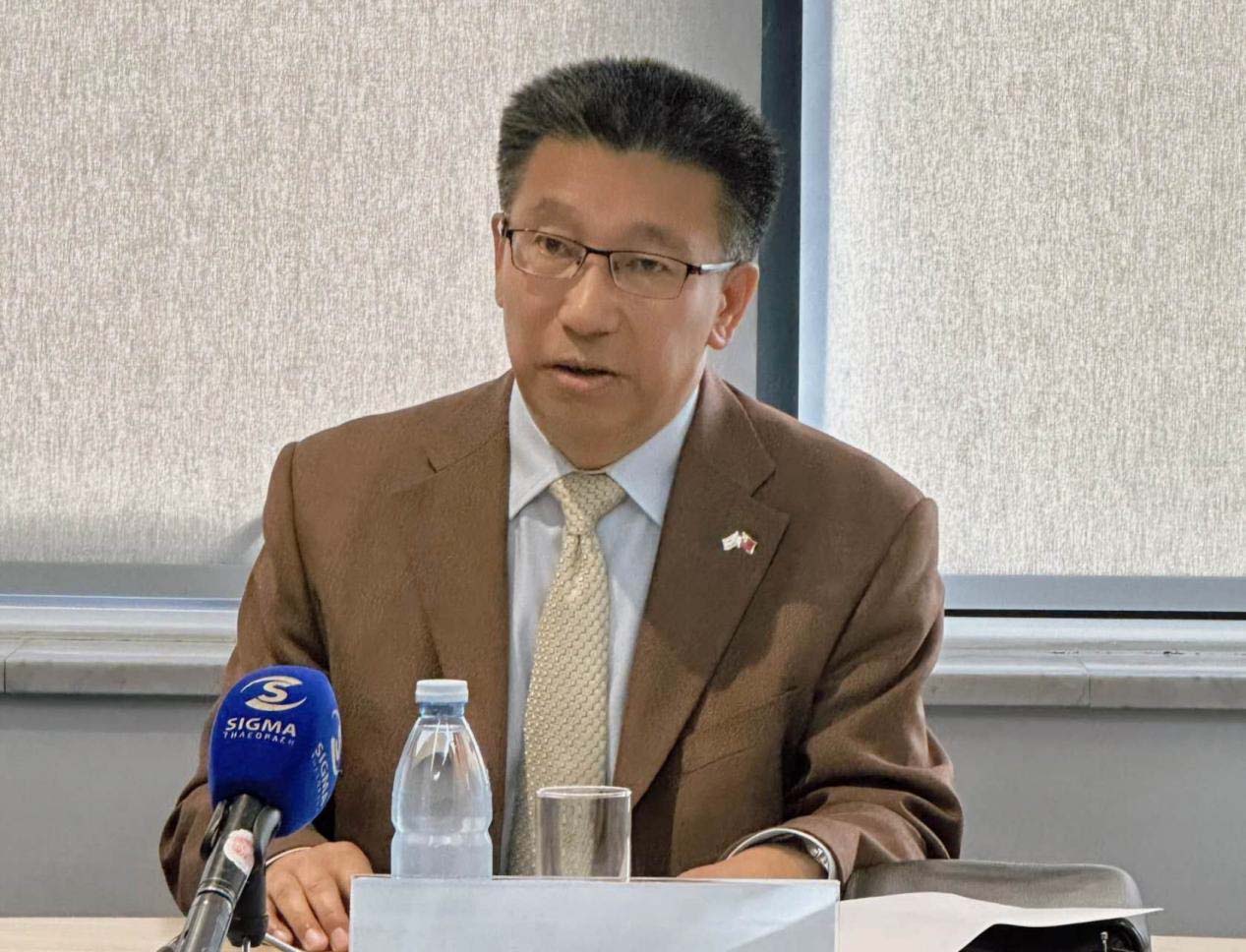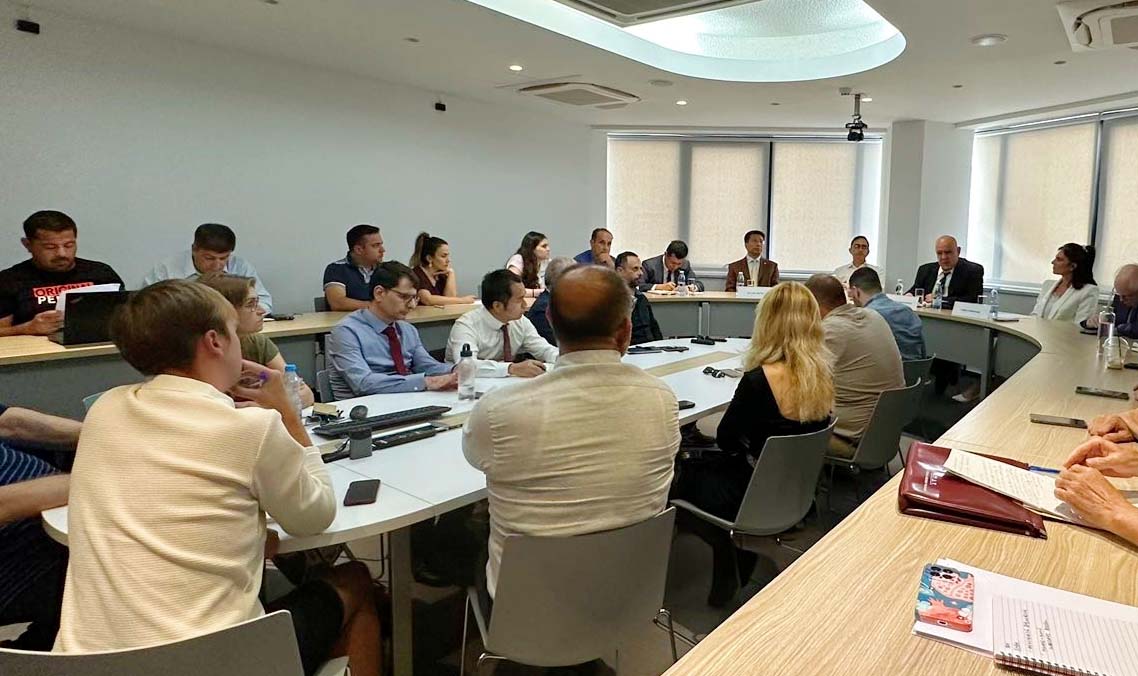Mirror of Culture, China-Cyprus strategic partnership and China’s foreign policy
By Liu Yantao, Chinese ambassador in Nicosia
On May 28, Ambassador of China to Cyprus Liu Yantao addressed the workshop on Mirror of Culture: A Unique Way to Understanding the China-Cyprus Strategic Partnership and China’s Foreign Policy, the main highlights of which are included below.
President Xi Jinping points out that great civilizations enjoy similarity, mutual understanding, and more importantly, affinity between each other. Both China and Cyprus, as ancient civilizations, boast a long history and splendid culture. It is fair to say that similarity, mutual understanding and affinity between civilizations are the defining features of the China-Cyprus strategic partnership.
Last year, our embassy and Cyprus Mail jointly set up the special column, Mirror of Culture. By comparing the unique cultural traditions of China and Cyprus from different angles, we endeavor to find the similarities between our cultures, and on such basis, explore the deep bonds between our peoples. In my view, there are four common features between Chinese and Cypriot cultures.
Continuity. Ancient Chinese and Greek philosophers in the Axis Age formed their thinking, values and cultural traditions, which are still highly relevant today. For example, in China, the political pursuit of great unity, the people-centered governance approach, and the emphasis on morality and justice have been passed down from generation to generation. Meanwhile, the spirit of democracy, freedom and humanism of ancient Greece are important tenets of contemporary Western civilization.
Innovation. Both Chinese and Cypriot people are adapting to the changing times while keeping their traditions. For example, there is a story in the Mirror of Culture titled ‘Breathing new life into ethnic fashion’. Chinese designers have put new fashion elements into traditional Chinese dress, receiving international recognition. And the Fashion Heritage Network Cyprus (FHNC) has re-introduced traditional garments, techniques, and materials but with a modern and innovative twist, while also engaging the younger generation.
Inclusiveness. Both China and Cyprus embrace multiculturalism. For example, there is another story in the Mirror of Culture titled ‘Melting Pots of Culture’. Kizil caves, a Buddhist grotto in China’s Xinjiang, represent the cultural heritage of Ghandara art and witness the integration of Chinese, Greek and Indian cultural features. Meanwhile, the mixture of civilizations has affected all aspects of Cyprus life: religion, cuisine, clothing, and language.
Peaceful nature. Both Chinese and Cypriot people love peace. The Chinese believe that peace is precious and that by taking a step back, one may have a broader space. Meanwhile, the Goddess of Peace Irene in Greek Mythology is widely respected, and the olive tree which symbolises peace is everywhere in Cyprus. In addition, the shipwrecks in the South China Sea and Mazotos off the coast of Cyprus shed light on trade routes of history, reflecting the two countries’ shared commitment to achieving peace and prosperity through foreign trade.

As an ancient Chinese scholar once observed, “Only with deep roots can a tree yield rich fruit; only filled with oil can a lamp burn brightly.” In fact, China’s foreign policy is deeply rooted in the 5000-year-long civilization. Dr. Henry Kissinger wrote that “China is singular. No other country can claim so long a continuous civilization, or such an intimate link to its ancient past and classical principles of strategy and statesmanship.” Today, the overall objective of our major-country diplomacy with Chinese characteristics is to build a community with a shared future for mankind, which reflects the Chinese people’s unique outlook on morality, society, the world and the universe.
With an outlook on morality that puts justice before interests, we are committed to upholding international fairness and justice. The debate over justice and interests is the central topic in China’s traditional ethics. Some in the West may tend to put their own interests first and believe that there are no permanent friends, only permanent interests. But the Chinese approach this issue in a different way. Confucius said that a man of virtue observes what is morally right, while a petty man only goes after personal gains.
We are committed to equality and mutual respect between nations, big or small, which can be seen in the China-Cyprus relationship. In addition, we honor our commitments and hope to see less wheeling-and-dealing and more mutual respect and trust in international relations.
With an outlook on society that advocates harmony without uniformity, we are committed to promoting exchanges and mutual learning among countries. In the 5,000-year-long civilization, the Chinese nation has an enduring pursuit of peace, good-neighborliness and harmony. We value friendship and believe that one should not do unto others what he does not want others to do unto him.
Last year, President Xi Jinping put forward the Global Civilization Initiative (GCI), which advocates equality, mutual learning, dialogue and inclusiveness between civilizations. In international affairs, we are opposed to using values as a political tool for confrontation, or chanting the narratives of “democracy vs. autocracy”, as this would only turn back the wheel of history and bring the world back to the Cold War.
Importantly, democracy is the common value of humanity and the right of all people around the world. China’s whole-process people’s democracy is a form of democracy that best fits China’s history, culture and national conditions.
With an outlook on the world that values peace among all nations, we are committed to advancing peaceful development in the world. Over 600 years ago, a famous Chinese navigator called Zheng He led a fleet for seven overseas expeditions. He visited over 30 countries and regions and left many stories of friendly interactions with local people.
Since the founding of the People’s Republic of China, we have firmly followed a path of peaceful development. Seventy years ago, China and other countries jointly put forward the Five Principles of Peaceful Coexistence, which has become a basic norm governing international relations and a fundamental principles of international law.
Today, China calls for an equal and orderly multipolar world and universally beneficial and inclusive economic globalisation. We reject protectionism, decoupling, severing supply chains, or building ‘small yard, high fence’.
In addition, under the framework of the Belt and Road Initiative (BRI) which was adopted over 10 years ago, we have continued to strengthen policy, infrastructure, trade, financial and people-to-people connectivity with partner countries.
Cultural exchanges and mutual learning bring nations together. Recent years have witnessed blooming cultural and people-to-people interactions between China and Cyprus. For example, the second Confucius Institute in Cyprus has been set up at the Cyprus University of Technology, the Center on China Studies has been established at the European University Cyprus, the Department of Antiquities of Cyprus has joined the International Alliance of Museums of the Silk Road, and the Theater of Ayia Napa has joined the Silk Road International League of Theatres. Moreover, we have also organised influential events, such as the China-Cyprus Youth Forum, the Nicosia Book Fest with China as the Country of Honour, and the Collection of China-Cyprus Friendship Stories, which have further enhanced the friendship between our peoples.
Going forward, we are ready to work with Cyprus. It is important to jointly advocate respect for the diversity of world civilisations, promote the common values of humanity, build on the cultural heritage and break new ground, and enhance international cultural and people-to-people exchanges. For China and Cyprus, let’s work together toward the vision of building a community with a shared future for mankind!
The workshop was organised by the embassy, the Cyprus Center for European and International Affairs of the University of Nicosia, and the Cyprus Mail.







Click here to change your cookie preferences